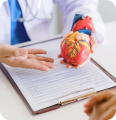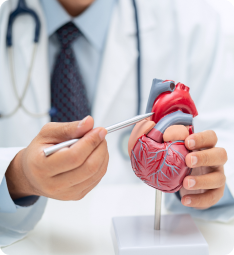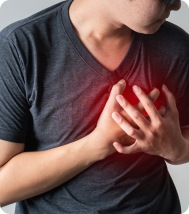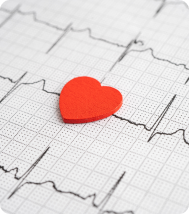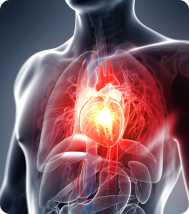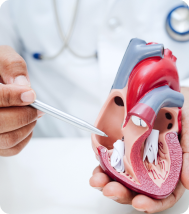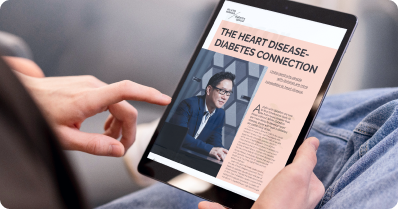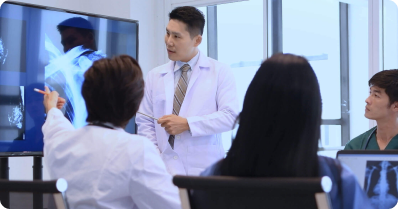Cardiac Rehabilitation
What is Cardiac Rehabilitation?
Cardiac rehabilitation is a medically supervised programme designed to improve cardiovascular health for people who have experienced heart attack, heart failure, angioplasty, or heart surgery in the past. This well-rounded approach combines exercise, education on heart-healthy living, and counselling to reduce stress and help individuals return to an active lifestyle. It’s a vital part of the recovery process that aims to stabilise, slow, or even reverse the progression of cardiovascular disease.


Benefits of Cardiac Rehabilitation
Components of Cardiac Rehabilitation
A successful cardiac rehabilitation program is multifaceted, involving a diverse team of healthcare professionals working together to tailor the programme to each patient's needs. Key components include:
Medical Evaluation:
The process begins with a thorough assessment of the patient's health status, including a review of medical history, physical examination, and diagnostic tests. This helps in creating a personalised rehabilitation plan.
Supervised Exercise Training:
Exercise is a cornerstone of cardiac rehabilitation. Patients engage in activities such as walking, cycling, and swimming, as well as strength training. The intensity and duration of exercise are gradually increased under careful medical supervision.
Education for Heart-Healthy Living:
Patients receive comprehensive education on various aspects of heart health, including nutrition, weight management, smoking cessation, and stress management. Understanding these elements is crucial for preventing further heart issues.
Counselling and Psychosocial Support:
Addressing the emotional and psychological impact of heart disease is a critical component of rehabilitation. Counselling sessions and support groups help patients cope with their medical and living conditions, reducing feelings of isolation and depression.
Risk Factor Modification:
Identifying and addressing risk factors such as high blood pressure, high cholesterol, diabetes, and obesity is essential. Personalised strategies are developed to manage these risk factors effectively.
Cardiac rehabilitation is an important and life-changing programme that allows patients with heart disease to improve their health and quality of life. By focusing on exercise, education, and emotional support, it not only aids in recovery but also lays the foundation for a heart-healthy future.


